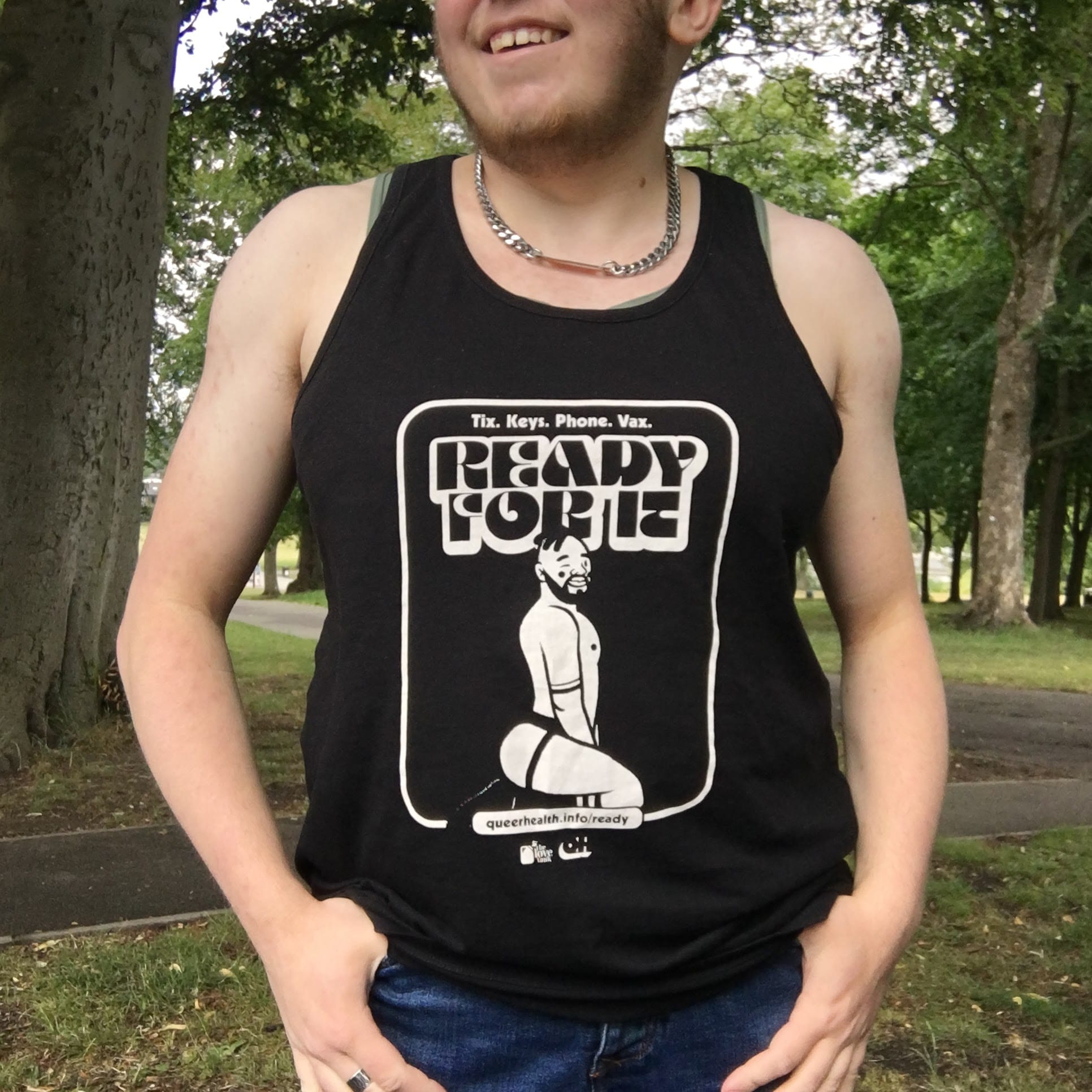Loving masculinity when men are in crisis
My masculinity is not defined in relation to other people's oppression.

[CW: discussion of misogyny. Also, shout out to Phil Hill, whose question inspired me to write this.]
I have a confession to make: I get uncomfortable when people say they don’t understand why bisexual women choose to date men when they could just date women.
Let me explain, because I understand this is usually a joke. I also understand just how often men who date women fail to meet the very, very low bar of not being a total dick their partners. It’s not that I want to make a #NotAllMen argument; I’m uncomfortable because it brings up my own shame. There’s nothing wrong with the joke – or with not wanting to date men – but it brings up feelings I’m still working through.
It makes me worry that I am wrong to love my masculinity.
Men are, apparently, in crisis. And it’s true: I definitely had a crisis when, about six months after realising I’m trans, it began to dawn on me that I wanted to use he/him pronouns. Up until that point I had been using ze/hir pronouns, but the more I explored my transness, the more obvious it was to me that the ‘agender’ and ‘genderqueer’ labels I’d been trying on didn’t properly fit me. Sure, they were a thousand times more comfortable than ‘cis woman’, a box I’d spent twenty years squishing myself into, but they still weren’t me.
While you can use he/him pronouns without being a man – and be a man without using he/him pronouns – I had to confront the fact I am one.
I used to be scared of men. The idea that I was one terrified me. My maleness and my masculinity are different from cis men’s, but that doesn’t mean I’m exempt from the ways men can – let’s face it – be shit.
It is easy to say I love my transness, that I would choose it every time. It is harder to say I love my masculinity, because how can I love something that’s responsible for so much pain and hatred and violence?
To me, saying that masculinity isn’t inherently toxic feels like a cop-out. We still live in a patriarchal society where a particular kind of toxic masculinity is (wrongly) praised and rewarded. Not all men are misogynists, but all men benefit from institutionalised sexism in ways it’s easy for them not to notice. We grow up swimming in implicit – and sometimes explicit – societal messages about gender roles, in a society where men’s masculinity is affirmed by misogyny. It’s not enough to claim that masculinity isn’t toxic if you’re not actively working to embody and build space for a softer, queerer masculinity.
While I try not to shame my younger self for his absolutist (and very autistic) thinking, the realisation that I might be a man slammed me right back to my teenage years when men felt like the enemy. Admitting that I wanted masculinity would surely be a betrayal of my feminist values. If I really was a feminist, how could I want to be a man?
Obviously, this is ridiculous. Stepping into my masculinity and giving myself permission to exist in my gender is aligned with my queer, radical politics, not a betrayal of them. I wasn’t abandoning bisexual woman; I had been a faggot the whole time. Fundamentally, not being a man doesn’t inherently prevent me from hurting people, and being a man doesn’t automatically mean I’m going to hurt people – though I am careful to be aware of how I now benefit from male privilege.
It is important to me that I do not uphold misogynistic systems, even – or maybe especially – when there would be genuine benefits to me doing so. I am not interested in an acceptance of my gender that relies on me supporting cisheteropatriarchal, white supremacist values. My masculinity is not defined in relation to other’s oppression or the strict enforcement of a gender binary.
Figuring all of this out – slowly accepting that I do not have to feel guilty for how good it felt to be a man – was my masculinity crisis. In some ways, the wider quote-unquote “crisis of masculinity” is eerily similar.
There are real issues facing men in 2025. As a trans man, for example, I’m worried about being denied access to healthcare, being excluded from using public toilets, and my reproductive rights being taken away. But on a broader level, the masculinity that cis men have been taught to conform to is letting them down. Cisheteropatriarchy also harms cis men, but instead of dismantling it, they have decided the problem is women and people of marginalised genders.
Accepting my own manhood has been helped by the men I have met who embody the kind of masculinity I want for myself. The last few years have been a delightful discovery not only of myself, but men whose friendship and camaraderie I want, men who – importantly – have never made me feel any less of a man than they are. (It’s noticeable to me just how many of them have been queer men and/or men of colour.)
Masculinity can be beautiful. My transness and masculinity are deeply intertwined; I can’t not love being a man.
However, I’m not sure the “male loneliness epidemic" is worse than the loneliness so many of us are experiencing under late-stage capitalism and increasingly authoritarian governments. The struggles of many straight, cis men to be vulnerable with each other and form genuine connections is a result of patriarchal gender norms. Breaking away from those norms requires work and can expose them to mockery and even violence from those invested in policing the oh-so-fragile gender binary.
The men who shout the loudest about the crisis of masculinity have it wrong. Amazingly, we don’t need to return to a toxic masculinity as men like Andrew Tate or Elon Musk define it. If you actually care about men, you need to fight for a masculinity that is willing to interrogate itself, willing to expand in how it is defined. You also need to understand how that fight goes hand-in-hand with the battle for reproductive justice and trans rights, the fight against facism.
And look, I’m not saying it’s easy. Believe me, I know how it feels to have something you based a huge amount of your identity and understanding of the world on turn out to be a falsehood that was keeping you trapped and unhappy. But if I can get through that – with far less societal acceptance of my masculinity – cis men can too.
Right now, conversations about masculinity are dominated by people who are trying to convince us that traditional gender roles are the answer, seemingly unable to see that this strict policing of gender is the problem. Men like this would deny that I am a man; they’re also why I sometimes feel guilty about how much I love being one.
But I love my masculinity in loud defiance of the gender binary, not in support of it.

Thank you for being here! You can subscribe for free below to get essays delivered directly to your inbox, and subscriber-only cruising the internet round-ups. By becoming a paid subscriber, you can help keep my writing about gender and masculinity free and accessible for everyone.

